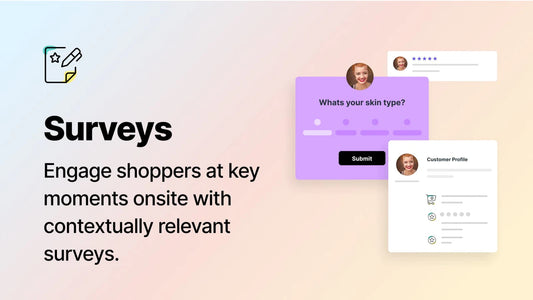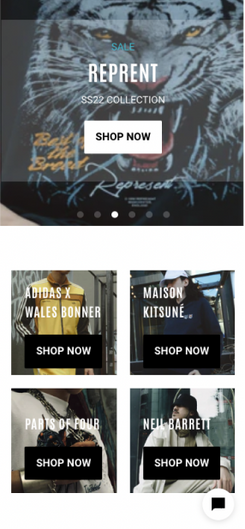As Shopify Experts, we're often asked a whole range of questions on both how to use Shopify and how to get the best from the e-commerce platform. In order to help answer some of the key questions asked by Shopify merchants and those looking to build a Shopify store, we've put together a list of some of the key questions and answers on Shopify below:
What is Shopify?
Shopify is a fully hosted, cloud-based e-commerce platform that allows businesses and entrepreneurs to sell products both on and offline. Shopify merchants can use a Shopify Theme (a template) to create a Shopify store, Shopify apps to customize their store or work with a certified Shopify Expert to create advanced features. More information on Shopify and how it can be used can be found in our extensive range of blog articles.
How Shopify works?
Shopify works by providing a fully hosted platform for individuals and businesses to launch e-commerce websites. The key aspects of building a Shopify store and working with Shopify can be found in this blog. To find out more about how to connect with local Shopify Experts, Shopify Meetup events are a great way to learn more.
What to sell on Shopify?
Given that Shopify is so diverse, a range of products and services are sold through the platform. In the past 5-8 years, dropshipping products had been a popular choice for many Shopify merchants. In the past few years, many small and multi-national private label brands have now come to use Shopify as their e-commerce platform of choice. Here at Blend Commerce, we recommend that individuals and businesses considering using Shopify focus on selling a product that:
- Has a price point of over $50.
- Is private label or has unique feature or selling point.
- A 'story' can be told about that product.
- The individual or business is passionate about.
- Can be sold to a specific demographic
To get more advice on how to find your target market, take a look at some tips from the marketing team at Blend, here.
What is Shopify payments?
Shopify payments is a popular payment gateway, provided by Shopify, exclusively for Shopify merchants. Whilst many major payment gateways are available via Shopify, options are available at a global and local level. To find out more, check out this blog by We Make Websites.
What language is Shopify written in?
Shopify is written in a code base called liquid, loosely based around Ruby on Rails. CSS, JQuery and JSON are also used heavily on Shopify sites. Whilst Shopify Experts can help with using such languages for building and developing a Shopify store, training and support can be found from Shopify.
Why Shopify?
Shopify is often compared to WooCommerce and Magento as core options for running an e-commerce store. Whilst there are many comparison articles available via google, some of the core benefits that Blend Commerce clients mention are:
- Ease of use for admin.
- Reduced need for a developer.
- Marketing integrations, especially with Facebook and Instagram.
Does Shopify integrate with Quickbooks?
Quickbooks is a hugely popular accounting app for small and growing e-commerce businesses. Shopify does integrate with QuickBooks using the QuickBooks Sync App by Bold.
How to promote a Shopify Store?
Promoting a Shopify Store is a key question for many Shopify merchants, but can often be overlooked. The first step to successfully promoting a Shopify store should be to clearly identify the target market for a brand. This means understanding the needs, wants and behaviors of your potential customer.
Once the target market for a Shopify store has been identified, it's then important to evaluate which digital marketing tools best fit your demographic. Digital marketing channels include:
Social media posting - video, images, and products
Social media posting can take many forms, but the key focus for outbound marketing is voice, style, and product posts across social media platforms. The tone of Video, message, and image/video selections must align clearly to the brand, as posts will either persuade potential and existing customers to purchase from you.
Blog and content marketing
Blog or content marketing refers to any text-based marketing that is produced to persuade consumers to gain interest, maintain interest or buy from you. Content for blog articles needs to revolve around a fairly wide set of interests that relate specifically to the target market/audience for your brand, so that customers get a wider understanding of what your brand represents, and how this makes them feel when they align with your brand.
Furthermore, regular updates to Blogs are very useful ways to maintain and improve your search position on Google, by using keywords within the content that is likely to be searched for by potential customers. While the algorithm that is used by Google to select sites is constantly evolving, the approach to Blog and content marketing can be adapted.
Facebook advertising
Facebook advertising is one of the most popular, but potentially successful ways to build a brand online. Facebook advertising allows a brand to select groups of people that have certain characteristics (age, sex, location on a basic level) and have ads shown to only them when they are using Facebook. The level where Facebook Ads can be targeted to a specific group can be very precise - Number of children, likelihood to buy certain products, income - are all included as options. Facebook works with 3 data companies that mine data on Facebook users, which can then be utilized by marketers wishing to target those consumers.
It is crucial that the approach to Facebook advertising is structured and analyzed regularly, as there is a potential to invest heavily with little or no return if not used carefully. That being said, once a consistent approach has been discovered, the returns on Facebook via sales means that some brands spend thousands of dollars per day to drive sales.
Email marketing
Email marketing is effectively the oldest form of digital marketing. That being said, this medium is still heavily utilized by brands both big and small. The key for email marketing so to successfully integrate this into the sales funnel (see below) - each email must be meaningful and have a compelling call to action (CTA) for the customer to work towards making a purchase. Email marketing must have the consistency that will revoke trust in the customer to move through your sales funnel.
Influencer marketing
Influencer marketing relates to the promotion of products by individuals via social media, using posts that appear to be personal opinions and thoughts. The logic here is that buying decisions are 7 times more likely when a consumer has had a personal recommendation to a product, compared to a standard advertisement.
Influencers sometimes provide discount codes or links in their posts, which can then be tracked by the business in terms of sales. For each sale made as a result of the influencers post, a discount, commission, or product will be provided to the influencer.
Facebook Live
Facebook Live allows Facebook users to create live videos, images, and videos, when, and wherever they wish to. This is a relatively new mode of marketing that has not been utilized extensively but is showing excellent results to those who do. During a live video, products can be modelled or shown, with links provided in messenger to allow viewers to purchase products. This can be a highly engaging way to give customers a real insight into your products and brand.
For a great guide to Facebook Live, click here:
Search Engine Optimisation (SEO)
SEO refers to manually manipulating or ‘Optimising’ our store to rank as high as possible on search engines. The goal of SEO is to ensure that digital marketing efforts of the business aid those customers who use search engines to find products and services they are searching for. This is done by optimizing for ‘Keywords’. Keywords are the terms and combination of terms that your customers will be searching for when trying to find your product. SEO seeks to include these terms in all your digital marketing efforts to ensure that search engines like Google, show potential customers your store and products when searching. Whilst SEO does take time to show results, SEO can provide excellent long-term benefits to traffic and conversions.
Sales Funnels
A sales funnel is effectively a map of how you are going to get target customers to be paying customers for your brand. The idea of a funnel is that at the top of the funnel, there is a wide point at which may enter, as the funnel closes to the spout, the number of people reduces.
Finally, we arrive at a smaller group who leave the funnel having purchased from us.
It is important to define sales funnels so to ensure you can evaluate all the ways you are connecting with customers. If one part of the map does not lead enough customers through to the next stage, it can be amended and worked on.
Is Shopify good for SEO?
Shopify offers an easy way to edit core SEO information on each page of a Shopify store, as well as giving Shopify merchants a simple way to use H1, H2 tags etc. Whilst SEO can be a challenge when initially setting up a store, a variety of apps and services are available to make this simpler. Blend Commer recommends Hike SEO for an easy and affordable way to manage the SEO for a Shopify Store.
What is Shopify POS?
Shopify POS enables Shopify merchants to easily sell products in a physical location, whilst benefitting from the inventory and other core features of Shopify. Shopify provides a range of POS options for both small and larger retailers.
Does Shopify host mail?
Whilst Shopify does not host mail, Shopify does integrate with all major email platform providers, including Klaviyo.
Does Shopify host websites?
Shopify does host websites and is a fully hosted, cloud-based e-commerce platform for both small and larger businesses.
Does Shopify integrate with Amazon?
Shopify integrates with Amazon via the Amazon channel app for Shopify. Many Shopify merchants initially begin selling via Amazon, and the Amazon channel app provides an excellent way to transition from the Amazon platform to Shopify.
Does Shopify use Stripe?
Stripe is commonly used on Shopify sites as a payment processor.
How does Shopify handle shipping?
Shopify shipping is often seen a more tricky aspect of setting up a store. Blend Commerce recommend using the Shopify Shipping guide to successfully create the correct shipping options for your customers.
How many products can Shopify handle?
Shopify stores can sell an unlimited amount of products. Whilst this is the case, Shopify merchants should choose a Shopify theme carefully depending on the number of products they sell. It should also be noted that Shopify has a '100 variant limit', which means that each product listed can have a maximum of 100 variant types. For more information on premium themes, Blend Commerce recommends reviewing themes by Out of the Sandbox.
How to add subcategories in Shopify?
To create subcategories in Shopify, watch this short video by Blend Commerce.
How to create a website with Shopify
To create or set up a Shopify store, individuals and businesses have a number of options and decisions to take. To help, Blend Commerce has created a number of blogs and videos to help support this process.
If you have further questions on Shopify, we're always happy to help. Send your questions to hello@blendcommerce.com or check out our social channels by clicking on the icons in the top left corner of our site.








